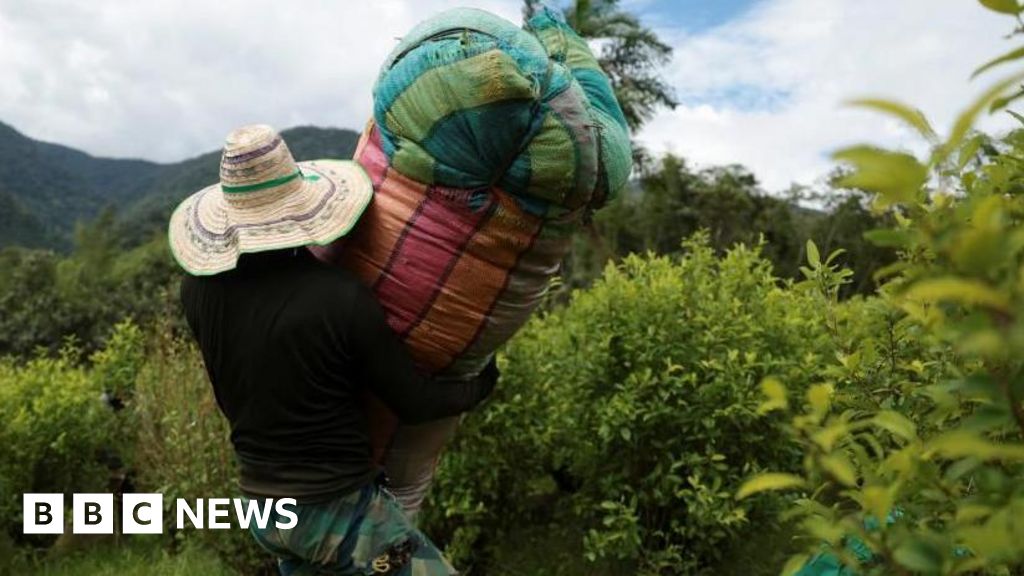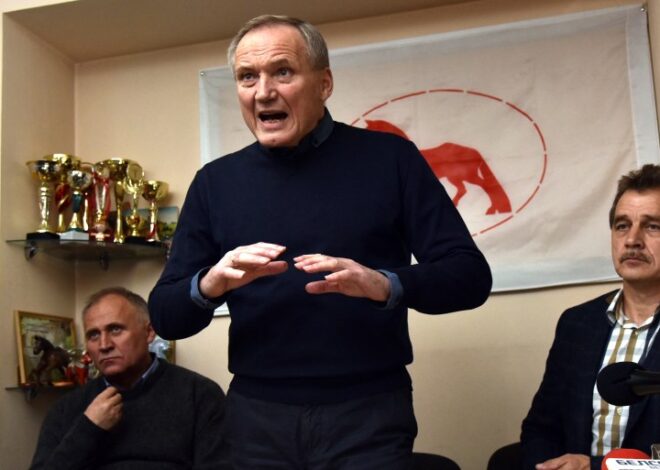
US designates Colombia country 'failing to cooperate in drug war'

U.S. Designates Colombia as Failing to Cooperate in Drug War
In a significant development, the United States government has officially categorized Colombia as a nation that has “demonstrably failed” to meet its obligations in combating drug trafficking. This designation, which has implications for international aid and relations, marks the first time Colombia has been placed on this list since 1997. The announcement was made as part of the annual certification process, where the U.S. evaluates various countries’ cooperation with its counternarcotics efforts.
Background on U.S.-Colombia Relations
The relationship between the United States and Colombia has historically been one focused on combating drug trafficking, particularly cocaine production. Colombia has long been the world’s leading producer of cocaine, and U.S. aid has been instrumental in supporting Colombian efforts to control drug-related activities. However, the dynamics of this relationship have shifted, particularly under the leadership of Colombia’s current president, Gustavo Petro, who took office in August 2022.
Rising Cocaine Production Under President Petro
The U.S. government’s decision comes amid reports of a surge in cocaine production in Colombia, which it attributes to the policies of President Petro’s administration. According to U.S. officials, cocaine production has reached unprecedented levels during Petro’s tenure, a claim that the president has vehemently denied. The Colombian leader took to social media to refute the allegations, asserting that the increase in coca cultivation had begun during the administration of his predecessor, Iván Duque, who served from 2018 to 2022.
The United Nations Office on Drugs and Crime (UNDOC) corroborated concerns regarding coca cultivation, reporting a 10% increase in 2023. This data is pivotal, as it underscores the ongoing challenges Colombia faces in its fight against drug cultivation.
Cocaine Seizures and Government Efforts
Despite the alarming rise in coca cultivation, the Colombian government has reported significant successes in drug seizures. Official figures indicate that Colombian security forces confiscated a record 1,764 tonnes of cocaine from August 2022 through November 2024. Furthermore, drug seizures have remained high into 2025, suggesting that while production may be increasing, efforts to combat trafficking are still active.
President Petro has argued that to effectively reduce coca cultivation, a decrease in demand for cocaine in the U.S. and Europe is essential. This perspective highlights the complexity of the drug trade, which is not solely a supply-side issue but also deeply intertwined with consumer behavior in foreign markets.
U.S. Criticism of Colombia’s Leadership
In its formal designation, the U.S. government placed significant blame on President Petro’s leadership for the failure to control drug production. The presidential determination submitted to Congress criticized Petro’s peace negotiations with various armed groups, many of which are financed through drug trafficking. The document stated that these attempts at accommodation with “narco-terrorist groups” have exacerbated the crisis, suggesting that such policies have hindered Colombia’s ability to tackle drug production effectively.
The U.S. statement praised the “skill and courage” of Colombia’s security forces in their ongoing battle against criminal organizations. However, it ultimately concluded that the responsibility for the failure to meet drug control obligations lies with Colombia’s political leadership.
Implications for U.S.-Colombia Aid
Despite the designation, the U.S. has decided not to cut off aid to Colombia, citing “U.S. national interests” as a reason for maintaining support. This decision may provide some relief to President Petro’s administration, which has faced increasing pressure from both domestic and international fronts regarding its drug policy.
The U.S. government has left open the possibility of recertifying Colombia if the administration takes more decisive action to eradicate coca and reduce cocaine production and trafficking. This conditionality underscores the ongoing scrutiny Colombia will face as it navigates its drug policies in the coming months.
Broader Context of Drug Policy
The timing of Colombia’s decertification coincides with a broader emphasis from the Trump administration on combating “narco-terrorists.” Recently, President Trump announced the destruction of a Venezuelan drug vessel in international waters, further highlighting the administration’s commitment to addressing drug trafficking in the region. The U.S. has claimed to possess evidence linking these vessels to narco-terrorist groups, although specific details have yet to be made public.
Conclusion
The designation of Colombia as a country failing to cooperate in the fight against drug trafficking signifies a turning point in U.S.-Colombia relations. As President Petro faces criticism from the U.S. and challenges within his own country, the path forward for Colombia’s drug policy remains uncertain. The stakes are high, not only for Colombia’s governance but also for the broader implications of international drug trafficking and security.
Key Facts
– The U.S. has designated Colombia as a country that has “demonstrably failed” in drug control efforts.
– This is the first time Colombia has been placed on this list since 1997.
– Coca cultivation in Colombia increased by 10% in 2023, according to the UN.
– A record 1,764 tonnes of cocaine were seized by Colombian authorities from August 2022 to November 2024.
– The U.S. will not cut aid to Colombia, citing national interests, but has criticized President Petro’s leadership.
– The U.S. has left open the possibility of recertifying Colombia if it takes more aggressive action against drug production.
Source: www.bbc.com


